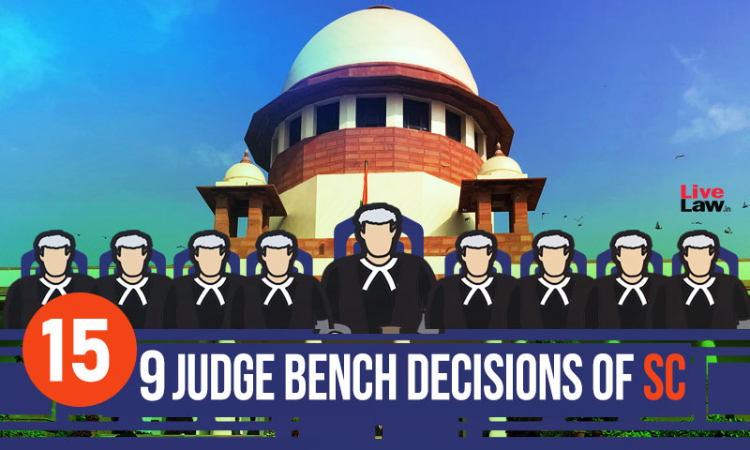- Home
- /
- Know the Law
- /
- 15 Nine-Judge Bench Decisions In...
15 Nine-Judge Bench Decisions In Supreme Court's History
Arabhi Anandan
8 Feb 2020 7:58 AM IST
A nine-judge bench of the Supreme Court is at present considering the issues of religious freedom and fundamental rights mentioned in the Sabarimala review order.In this backdrop, it is pertinent to note that there have been 15 nine-judge bench decisions in the history of Supreme Court. Here is a list of 15 landmark decisions by nine-judge benches in the history of the Supreme Court...
Next Story



